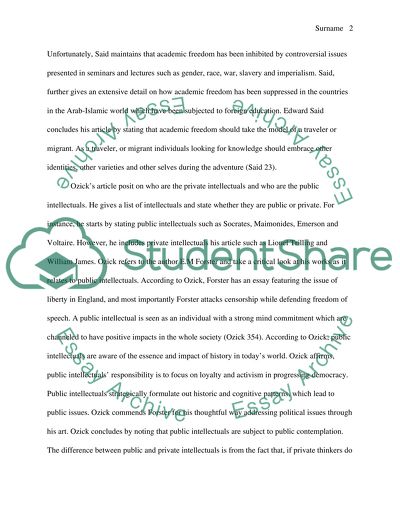Cite this document
(“Mediocre Public Intellectuals: Edward Said and Cynthia Ozick Essay”, n.d.)
Mediocre Public Intellectuals: Edward Said and Cynthia Ozick Essay. Retrieved from https://studentshare.org/social-science/1435167-conversation-essay
Mediocre Public Intellectuals: Edward Said and Cynthia Ozick Essay. Retrieved from https://studentshare.org/social-science/1435167-conversation-essay
(Mediocre Public Intellectuals: Edward Said and Cynthia Ozick Essay)
Mediocre Public Intellectuals: Edward Said and Cynthia Ozick Essay. https://studentshare.org/social-science/1435167-conversation-essay.
Mediocre Public Intellectuals: Edward Said and Cynthia Ozick Essay. https://studentshare.org/social-science/1435167-conversation-essay.
“Mediocre Public Intellectuals: Edward Said and Cynthia Ozick Essay”, n.d. https://studentshare.org/social-science/1435167-conversation-essay.


